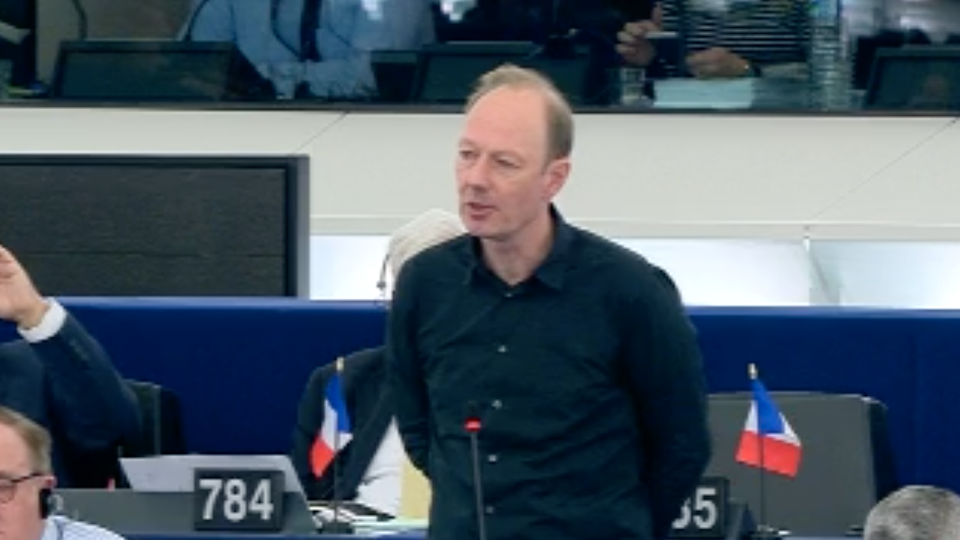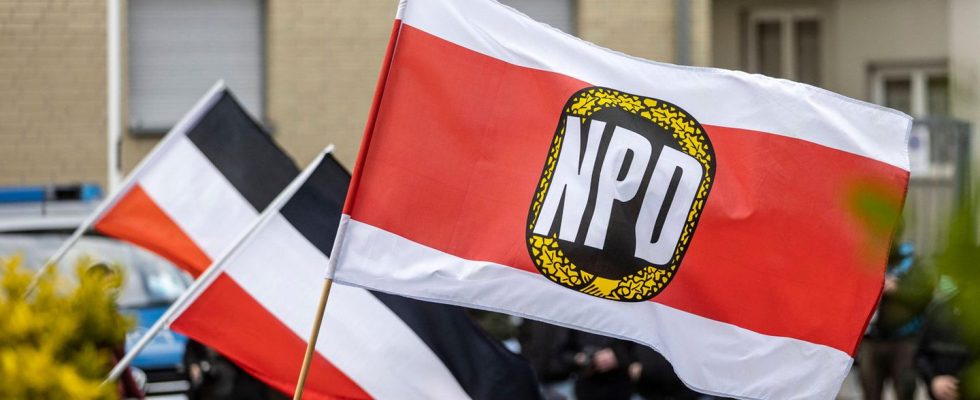Party changes its name
Right-wing extremist NPD is no longer called NPD
Supporters of the NPD wave flags: the National Democratic Party of Germany has changed its name.
The right-wing extremist NPD has changed its name. At a party conference on Saturday in Riesa, Saxony, 77 percent voted for a new name.
The right-wing extremist NPD has renamed itself and is now called Die Heimat. That was decided at a party conference on Saturday in Riesa, Saxony, with a majority of 77 percent, as the party announced. With the name, she refers to a concept of homeland that excludes non-ethnic Germans and immigrants or foreigners living in Germany. The homeland party should network the “resistance” against the politics of the “established”, as it was called, better.
According to figures from the Office for the Protection of the Constitution for 2021, with around 3,150 members, it is the strongest right-wing extremist party in Germany in terms of numbers, but with a clear downward trend – as has been the case with the number of voters for years. In view of the internal conflicts, there is no “end to the personnel, financial and structural erosion process” in sight, according to the report from a year ago for the protection of the constitution.
NPD: Rise and Fall in the 1960s and 1970s
The NPD experienced its first wave of success in the 1960s. The party managed to get into seven of the then eleven state parliaments. In the federal elections of 1969, it fell just short of the five percent hurdle with 4.3 percent. But the rise was only a temporary phenomenon. In the 1970s, the party largely disappeared from the scene.
The NPD experienced a resurgence with new personnel after reunification. While it was still worn by old NSDAP supporters in the 1960s, it was now particularly popular with those voters in East Germany who saw themselves as the losers of the fall of the Wall. In Saxony she was represented in the state parliament from 2004 to 2014, in Mecklenburg-Western Pomerania from 2006 to 2016. In both countries she made a name for herself with fierce internal quarrels. The rise of the AfD then sealed the fate of the NPD: the new party was more attractive to many NPD voters.
No more seats in state parliaments and the European Parliament
The NPD is no longer represented in any state parliament. She lost her last seats in Mecklenburg-Western Pomerania in 2016. In the federal election of 2021, it only came to 0.1 percent. In the 2019 European elections, she achieved 0.3 percent – and thus also lost the one seat in the European Parliament that she had won in 2014 with a result of 1.0 percent. This election had taken place without a threshold clause.
In recent years, the NPD has made a name for itself, especially in connection with the question of a party ban. The Federal Constitutional Court rejected a ban in 2017 – his argument: the NPD is too meaningless to be able to specifically endanger democracy in Germany. Another case is currently pending before the Constitutional Court: It is about the question of whether the NPD should be excluded from state party funding. In this case, the tax breaks for donations and other contributions to the party would no longer apply.

Watch the video: The satirist Martin Sonneborn sits in the EU Parliament for “The Party”. In 2018, after Angela Merkel’s speech, he took the opportunity to give first to the NPD and then to the Chancellor.

